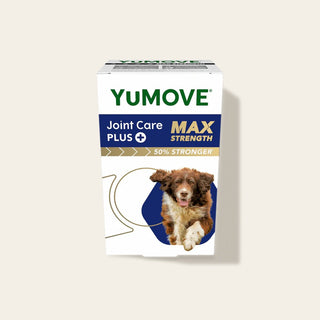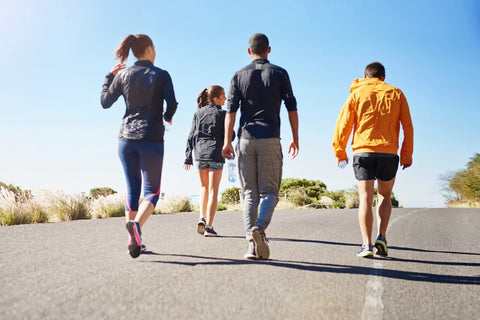

Why Do You Get Clicking Knees?
Do your knees click when you stand up, sit down or walk upstairs? We look into what causes those funny little noises and what you can do about it.
As we get older, the sound of clicking knees becomes a familiar accompaniment to all kind of everyday tasks. In the gym, as you bend down to pick up some weights. Standing up when you’ve been sitting down for a while at your desk. Sitting down on the sofa at the end of the day.
It all hinges on the knee joint
To understand why our knees sometimes snap, crackle and pop, it helps to know how the knee joint works.
The knee is one of the most important joints in the human body. It supports our body’s weight and is vital in enabling us to move both horizontally – walking and running – and vertically – sitting and standing.
“The knee bone’s connected to the… thigh bone.”
‘Dem Bones’ is the first anatomy lesson for many children.
Essentially, the knee acts as a hinge between three bones - the femur (thigh bone), tibia (shin bone) and patella (kneecap). The fibula, a lower leg bone, is also connected to the knee joint behind the tibia.

Your knee’s shock absorbers
Where the bones meet in the knee joint, they’re covered in a layer of cartilage that protects the bones from damage. Between the tibia and the femur, there’s another, tough, thick layer of cartilage called the meniscus that acts as a shock-absorber between your shin and thigh bone.
Like your hips and shoulders, your knees are synovial joints, protected by a synovial membrane and lubricated by synovial fluid.
Meanwhile, a capsule made of connective tissue surrounds the joint. This capsule is filled with a thick synovial fluid with a consistency similar to egg white which lubricates the knee joint and helps reduce wear and tear.
Noisy knees explained
And it’s here, deep within your knee joint, bubbling up in the synovial fluid, that we discover one of the most common reasons why your knees click.
The technical name for the noise that knee joints make when they click is ‘crepitus’. This word comes from the Latin, meaning to crack or rattle.
Over time, tiny air bubbles build up inside the synovial fluid due to changes in joint pressure. When they pop, they make that well-known clicking sound.
The biological link to knuckle cracking
Interestingly, exactly the same thing happens when we crack our knuckles. The only difference is that knee clicking is involuntary whereas we can choose to crack our knuckles.
Also, we’ve never heard of anyone getting upset by the sound of someone’s knees clicking. On the other hand, knuckle cracking is one of those noises that can really set your teeth on edge!
Biologically speaking, though, the process is the same. Gas bubbles build up in the synovial fluid in our finger joints. By pulling on our fingers, we can release the bubbles to ‘crack’ the joints. And the reason why, mercifully, people can’t do it over and over again, is that it takes time for the gas to accumulate in the joint once more.
A harmless activity?
In most cases, there’s no reason to worry if your knees click. However, if the popping is accompanied by discomfort, it’s worth going to the doctor to have it checked out.
This is especially important if you’ve been taking part in any sports that take a toll on the knees such as tennis, jogging and skiing. Knee clicking can be a sign that you’ve torn your meniscus, the rubbery cartilage between the shin and thigh bone.
Protect your knees with iMOVE
Most of us take our knees for granted. It’s only when our joints become stiff and we find it less easy to carry out our normal day-to-day tasks that we appreciate how important they are.
Help keep your knees healthy and flexible for an active lifestyle with iMOVE, the natural supplement we’ve developed especially for humans.
As you’d expect, we use only the highest quality ingredients, including:
- Glucosamine to help build cartilage around the knee joints
- Extracts of ActivEase® Green Lipped Mussel, a naturally rich source of Chondroitin and Omega-3 fatty acids to lubricate and soothe stiff joints
- Hyaluronic Acid to support the elasticity and viscosity of the synovial fluid in your joints
- Manganese to support collagen formation in the cartilage, tendons and ligaments to help maintain joint health
Kneesy does it
In the meantime, if your knee joints are feeling stiff, we recommend easing off on high-impact forms of exercise. Instead, try swimming, which is a wonderful low-impact activity that helps support your muscles and mobility.




